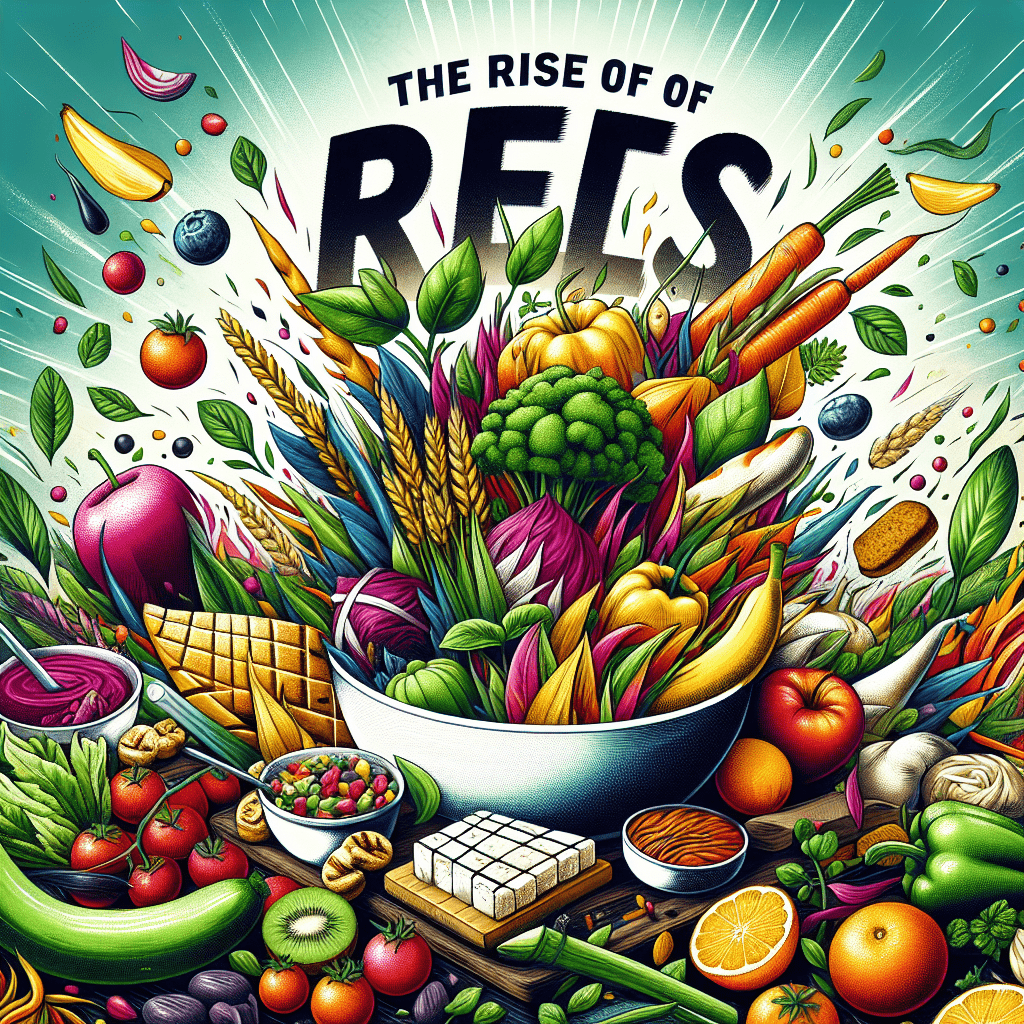In recent years, there has been a significant shift towards plant-based alternatives in the way people eat. This trend is driven by various factors, including health concerns, ethical considerations, and environmental awareness. Plant-based diets are gaining popularity not only among vegetarians and vegans but also among omnivores looking to incorporate more plant-based foods into their meals.
Benefits of Plant-Based Alternatives
Plant-based alternatives offer a wide range of benefits, both for individuals and the planet. Some of the key advantages include:
- Health Benefits: Plant-based foods are rich in essential nutrients, vitamins, and minerals that are beneficial for overall health. They are also typically lower in saturated fats and cholesterol, making them a heart-healthy choice.
- Environmental Impact: Plant-based diets have a lower environmental footprint compared to animal-based diets. They require less land, water, and resources to produce, making them a more sustainable option for the planet.
- Animal Welfare: Choosing plant-based alternatives helps reduce the demand for animal products, which can lead to improvements in animal welfare standards.
- Weight Management: Plant-based diets are often associated with weight management and can help individuals maintain a healthy weight.
Popular Plant-Based Alternatives
There is a wide range of plant-based alternatives available in today’s market, catering to different dietary preferences and tastes. Some of the most popular plant-based alternatives include:
- Plant-Based Meat Substitutes: These products mimic the taste and texture of traditional meat but are made from plant-based ingredients such as soy, wheat, or pea protein.
- Dairy Alternatives: Plant-based milk, cheese, and yogurt are becoming increasingly popular as more people seek dairy-free options.
- Plant-Based Protein Sources: Legumes, nuts, seeds, and whole grains are excellent sources of plant-based protein that can be incorporated into meals.
- Plant-Based Snacks: From plant-based jerky to veggie chips, there are plenty of plant-based snack options available for those looking for convenient, on-the-go options.
Conclusion
The rise of plant-based alternatives in today’s diet reflects a growing awareness of the benefits of incorporating more plant-based foods into our meals. From health and environmental considerations to animal welfare and weight management, plant-based diets offer a range of advantages for individuals and the planet. As the demand for plant-based alternatives continues to increase, we can expect to see even more innovative and delicious plant-based products hitting the market in the future.
FAQs
Q: Are plant-based alternatives suitable for all dietary preferences?
A: Yes, plant-based alternatives can be suitable for vegetarians, vegans, and omnivores alike. There are plenty of options available to cater to different dietary preferences and tastes.
Q: Are plant-based alternatives less nutritious than animal products?
A: Not necessarily. Plant-based alternatives can be just as nutritious, if not more so, than animal products. They are rich in essential nutrients, vitamins, and minerals that are important for overall health.
Q: Can I get enough protein from plant-based alternatives?
A: Yes, plant-based sources such as legumes, nuts, seeds, and whole grains are excellent sources of protein. It is possible to meet your protein needs without consuming animal products.
TIP: Incorporating more plant-based alternatives into your diet can be a great way to improve your health, reduce your environmental impact, and support animal welfare. Start by swapping out one or two animal-based products with plant-based alternatives each week to see how you feel and discover new favorite foods!
#Rise #PlantBased #Alternatives #Todays #Diet

